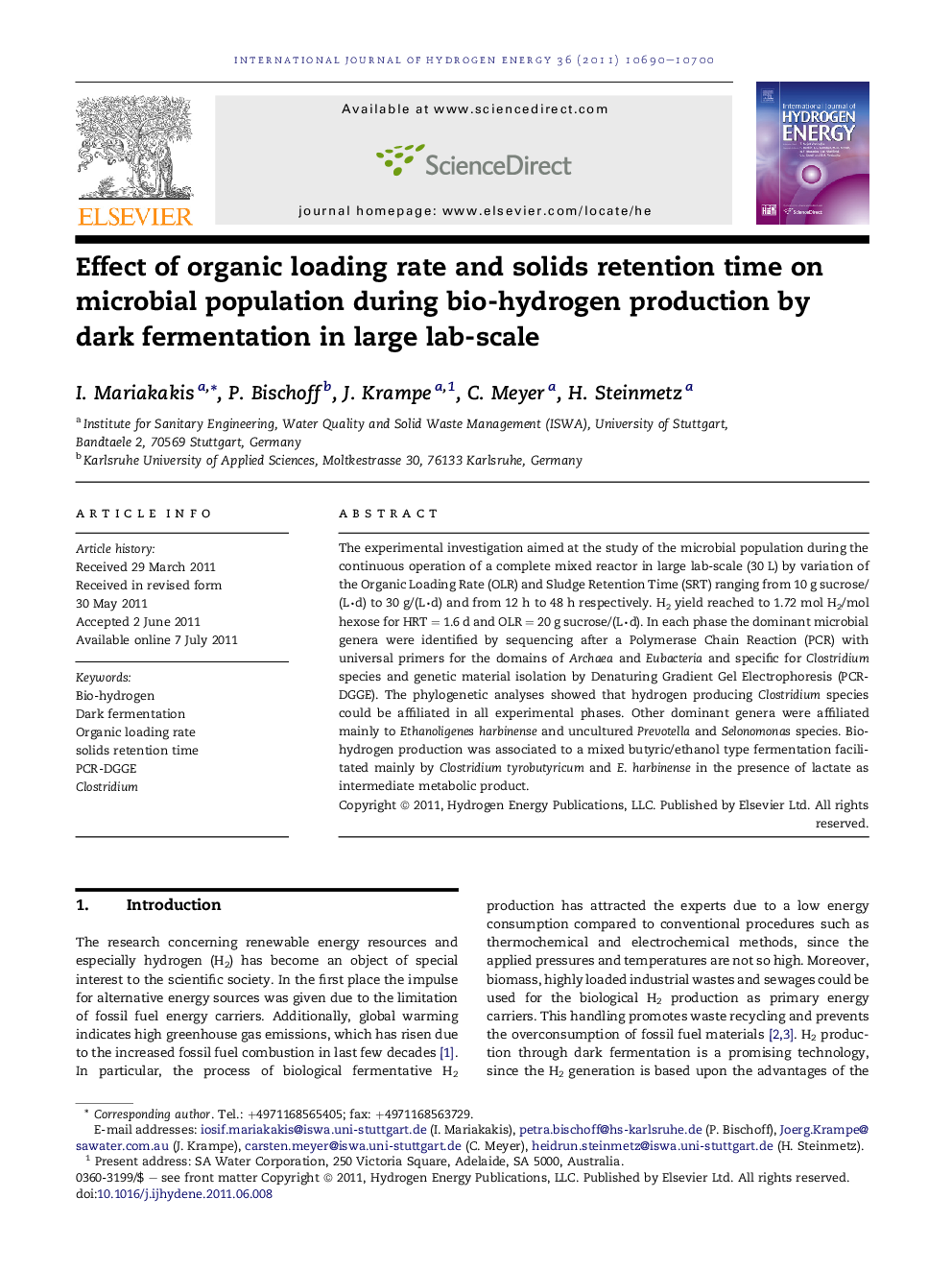| کد مقاله | کد نشریه | سال انتشار | مقاله انگلیسی | نسخه تمام متن |
|---|---|---|---|---|
| 1277537 | 1497576 | 2011 | 11 صفحه PDF | دانلود رایگان |

The experimental investigation aimed at the study of the microbial population during the continuous operation of a complete mixed reactor in large lab-scale (30 L) by variation of the Organic Loading Rate (OLR) and Sludge Retention Time (SRT) ranging from 10 g sucrose/(L∙d) to 30 g/(L∙d) and from 12 h to 48 h respectively. H2 yield reached to 1.72 mol H2/mol hexose for HRT = 1.6 d and OLR = 20 g sucrose/(L∙d). In each phase the dominant microbial genera were identified by sequencing after a Polymerase Chain Reaction (PCR) with universal primers for the domains of Archaea and Eubacteria and specific for Clostridium species and genetic material isolation by Denaturing Gradient Gel Electrophoresis (PCR-DGGE). The phylogenetic analyses showed that hydrogen producing Clostridium species could be affiliated in all experimental phases. Other dominant genera were affiliated mainly to Ethanoligenes harbinense and uncultured Prevotella and Selonomonas species. Bio-hydrogen production was associated to a mixed butyric/ethanol type fermentation facilitated mainly by Clostridium tyrobutyricum and E. harbinense in the presence of lactate as intermediate metabolic product.
► A large lab-scale reactor was successfully operated for 120 d.
► H2 yield reached 1.72 mol H2/mol hexose for HRT = 1.6 d and OLR = 20 g sucrose/(L∙d).
► No hydrogen production could be established for OLR lower than 10 g sucrose/(L∙d).
► No significant shift or changes in the bacterial population have been observed.
► A mixed butyric/ethanol fermentation was the main pathway for hydrogen production.
Journal: International Journal of Hydrogen Energy - Volume 36, Issue 17, August 2011, Pages 10690–10700